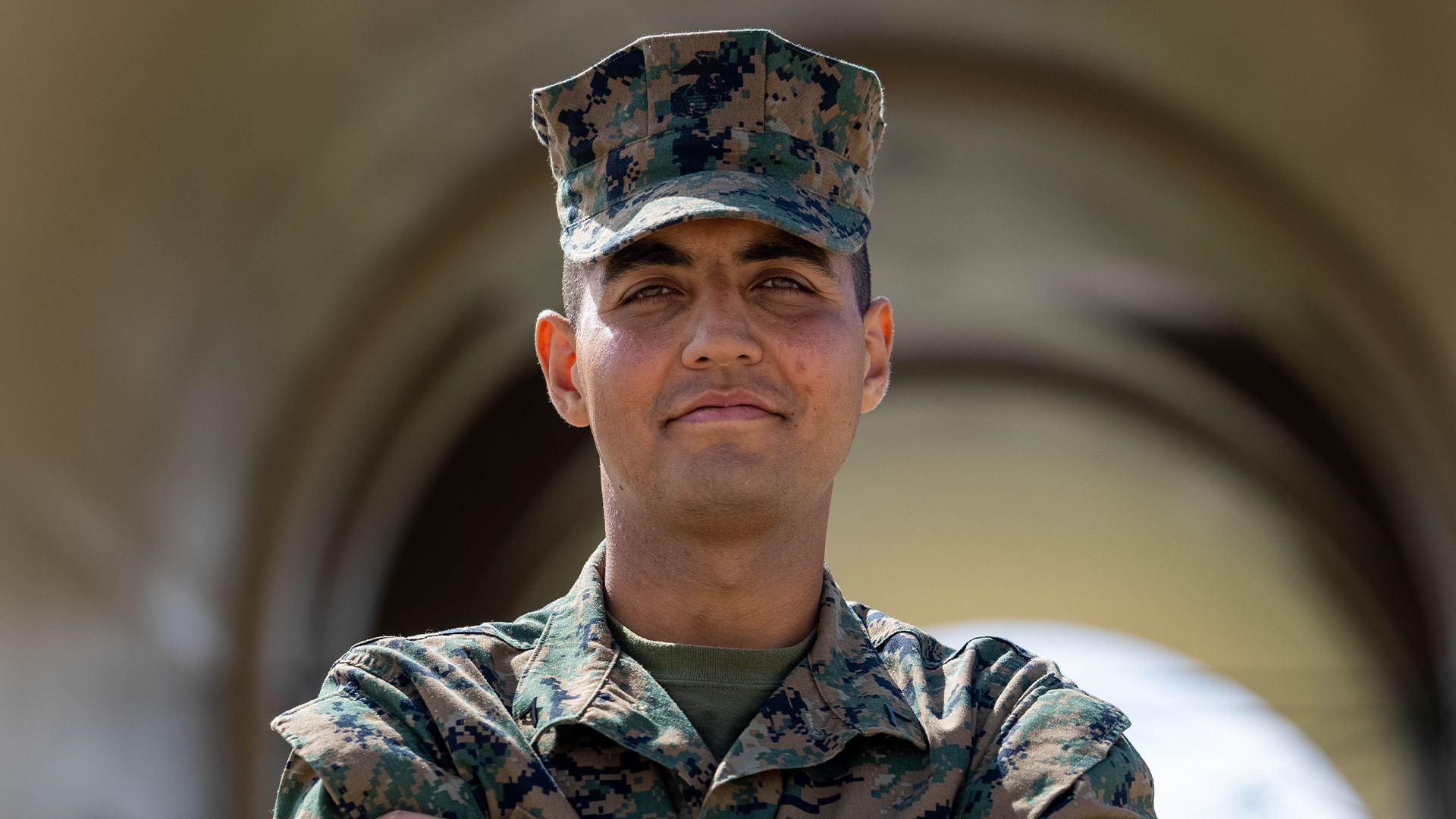

Aimal Taraki, a former Afghan interpreter, knew he wanted to join the Marine Corps after arriving in the United States, but had to act quickly before becoming too old to enlist.
“In my heart, I kind of felt obligated that I have to serve in the Marine Corps,” Taraki said in an interview. “In this way, I can say thank you to the United States and the Marine Corps for helping me out in Afghanistan.”
Taraki had served with Marines in Kabul before securing a visa that allowed him to come to California and join the rest of his family. Based on his experiences in Afghanistan, Taraki felt an obligation to join the Marine Corps.
But at 28 years old, Taraki was at the Marine Corps’ maximum age for recruits, so he decided that whatever else he planned to do in America, his top priority was to earn an Eagle, Globe, and Anchor.
“I was like: If I delay this process, I’ll never be a Marine,” Taraki told Task & Purpose. “So that’s why I was like: I better do this thing first.”
Subscribe to Task & Purpose Today. Get the latest military news, entertainment, and gear in your inbox daily.
Some members of Taraki’s family suggested he join other branches of the military. His father recommended he enlist in the Army, and his older brother suggested the Air Force, but Taraki had “a big crush on the Marine Corps.”
Taraki was inspired by famous battles in Afghanistan fought by Marines, who took part in some of the toughest fighting in Helmand Province, Kandahar, and elsewhere in the southern part of the country.
“The way I see it: No other force in the world could fight such epic battles as the Marines did,” Taraki said. “I see them as a superhero: going out there and saving the lives of people.”
He also admired the Marine Corps’ focus on discipline and physical fitness and wanted to learn the leadership style taught in the Corps.
“I love challenges,” Taraki said. “I see things in a different way. If it doesn’t scare me, I don’t want to do it. Plus, I’ve seen all the missions that the Marines carried out in Afghanistan, how brave and bold they were. They really did carry out the most important tasks and missions out there in Afghanistan. That was what really, truly inspired me to become a Marine.”
Taraki certainly faced challenges during boot camp in San Diego, where he was older than most of his fellow recruits, many of whom had just graduated from high school. He found recruit training difficult, especially his first and second Combat Fitness Tests.
But the most challenging part of his training was The Crucible: A 54-hour event that tests a recruit’s physical and mental strength, he said.
The former Afghan interpreter recalled the moment at the end of The Crucible when his Eagle, Globe, and Anchor was pressed into his hand, signifying the moment he became a Marine.
“When my senior drill instructor gave me that EGA [Eagle, Globe, and Anchor] that day, I felt so accomplished in the world,” Taraki said. “It’s kind of like a traveler traveling from East to the West and seeking something that he’s been wanting badly for his whole life. That’s how I felt, to be honest, like I finally achieved that thing that I was looking for my whole life.”
Now a private first class, Taraki graduated from Marine Corps Recruit Depot San Diego on April 7 and has just begun his training as a supply Marine in the Reserves. He said he is ready to take on the challenges ahead.
“I’m feeling amazing,” Tarak said. “Everywhere I’m going, people recognize me as a Marine now, not just like a normal civilian. So, I couldn’t be prouder than this and feeling accomplished at the same time. This was my dream and I finally achieved it.”
Although he has worked with other branches of the U.S. military and respects what they do, Taraki said he has formed a close bond with the Marines that cannot be broken.
“I will live and die for the Marine Corps,” Taraki said.
The latest on Task & Purpose
- How much of a threat does Russia’s Pacific fleet pose to the US?
- 5th Security Force Assistance Brigade commander suspended
- Former Afghan interpreter graduates from boot camp to become a Marine
- Russia jams US GPS-guided weapons given to Ukraine, leaked info shows
Taiwanese Air Force pilot’s ‘Winnie the Pooh patch’ causes international controversy